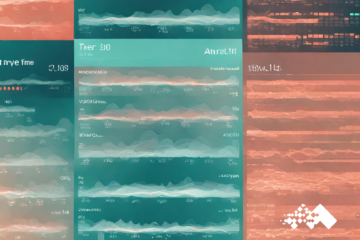At the time of this blog post, the world is coming to grips with the outbreak of the Coronavirus, but the value in managing business travel risk goes well beyond 2020, the ability to creatively deploy machine learning is incredibly valuable.
Business Travel Risk Manager
Suppose that you, a business traveler, are planning to fly from Portland, OR to New York, NY. The purpose of this trip is to meet with prospective customers at their offices in NYC. In today’s environment, organizations are struggling with determining when the value of a face to face (masked of course!) meeting balances, or outweighs, the risk of infection of a critically important employee or of being perceived by employees or the public as an organization that is insensitive to the pandemic crisis. How can an organization safely and rationally begin to regain the great benefits of in-person meetings facilitated by air travel?
Prioritizing safety while regaining productivity
The COVID-19 pandemic has highlighted the connection between travel and the spread of disease, defined by two forces: 1) the propensity for travel to spread disease, and 2) disruption of travel and related economies caused by public health strategies to mitigate disease spread.
Air travel has been hit particularly hard by restrictions and reduced demand affecting airline and airport operations. However, despite the enormous cost of these effects, any public health strategy to mitigate the pandemic requires participation from individuals and businesses. Consequently, businesses that depend upon air travel for their operations are caught in a challenging situation. Firms that cannot operate effectively under these conditions will be unable to serve customers and support workers, or conversely, they may try to push the limits on restrictions and exacerbate the health threat. Employee safety is a particularly challenging issue, as business travel may put employees at substantial risk for infection, thereby affecting employee health as well as future productivity. There are broader health concerns as well, affecting clients/prospects and the public at large due to their contact with traveling employees. This creates a substantial risk for firms that attempt or continue to engage in business travel during the pandemic.
Mosaic is working on a decision support tool called the Business Travel Risk Manager that will assist corporate travel managers and business travelers in making the best travel decision possible, given the constraints and information available. This tool will fuse detailed data from US air travel networks, public health epidemiology, and the latest COVID-19 research into a single source of information that businesses can leverage.
Bringing relevant data together to facilitate making the best decision
Continuing the example with you, our business traveler, planning to fly from Portland, OR to New York, NY: several options for travel need to be considered and weighed in terms of risk. You could choose to connect through DFW, PHX, SFO or other airports. You could choose to fly a particular airline given their recent track record for capacity of their flights (i.e., to allow for social distancing). You could also opt to delay the trip or even schedule a remote meeting instead to protect everyone’s safety. However, in order to weigh the risks and make this decision, you and the travel decision-makers in your business need access to the appropriate information.
Both the business and the traveler in the above example would receive the following information from the tool: costs for the proposed trip and each route; the potential for travel disruption due to flight cancellation or schedule change; the potential risk of encountering a COVID-19 affected individual along each route; the potential risk of the traveler spreading COVID-19 to others along the route and in New York (i.e., their prospective customers); the potential economic cost of dealing with a COVID-19 affected traveler returning to the business in Portland (i.e., time in quarantine, lost productivity, spread to other employees). We combine relevant data sets and then leverage statistics and Machine Learning (ML) to model the data. This information will be aggregated into an overall picture of risk for each proposed route/trip, providing context and allowing for easy comparison of options versus value of the trip, resulting in a decision with which everyone can be comfortable.
This tool can help your company today!
One key benefit is that everyone across the corporation will be using the same tool. That enables a consistency in decision-making that takes out the guess work and subjectivity that often infringes on making the best possible business travel decision. By providing data-driven decision support for corporate travelers so that they can safely and effectively navigate these difficult circumstances, Mosaic will provide not only a direct economic benefit to businesses that can plan their air travel more effectively, but also a substantial safety benefit to their employees, clients and the public through better containment of pandemic spread. If you would like more information about this or other ways that Mosaic is moving advanced analytics forward, please click here.


